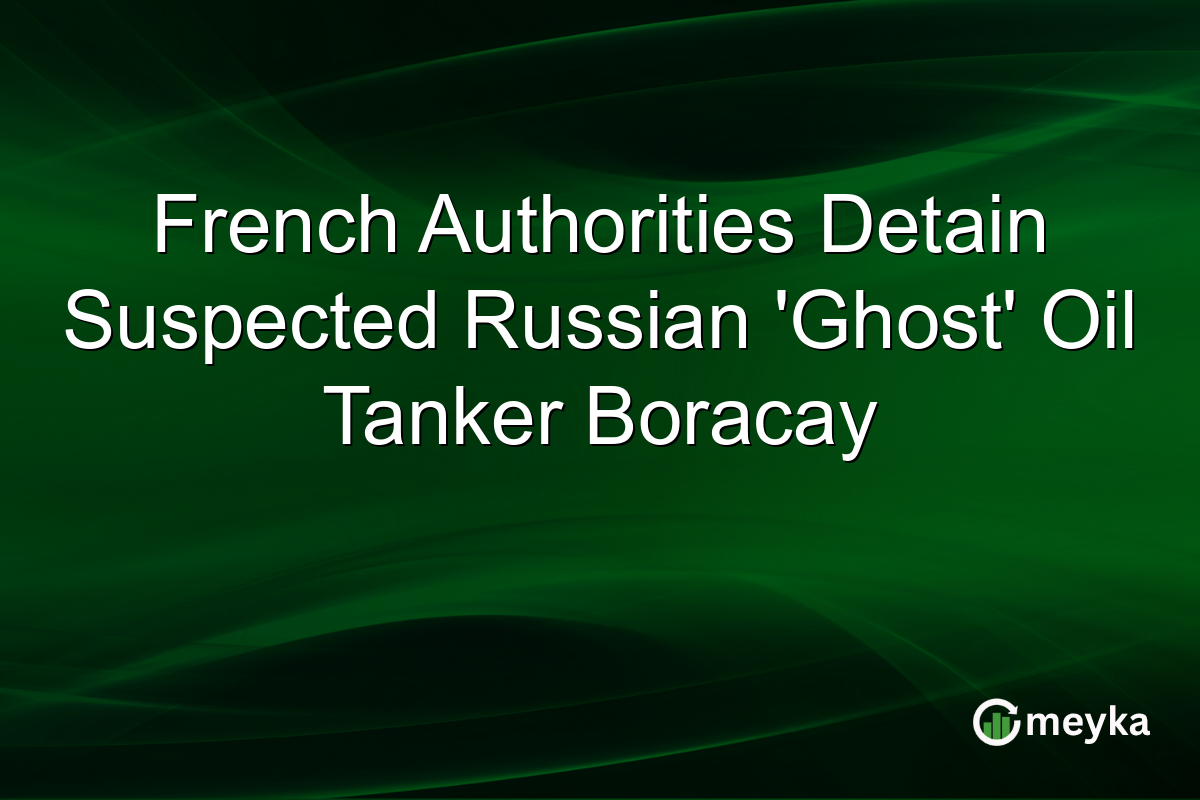French Authorities Detain Suspected Russian ‘Ghost’ Oil Tanker Boracay
In a significant move, French authorities have detained the oil tanker Boracay. This detention is due to suspicions that the vessel is part of Russia’s so-called ‘shadow fleet,’ which countries use to circumvent Western sanctions. The ship was intercepted near Western France and boarded by French Navy commandos. Authorities are investigating its compliance with maritime regulations and proof of nationality.
Why the Detention Happened
The French Navy’s interception of the Boracay oil tanker highlights a strategic move against maritime operations that evade international sanctions. France suspects the Boracay to be part of a fleet used by Russia to obscure oil shipments despite sanctions. These ghost fleets have reportedly been operating under various fictitious identities to keep Russian oil exports flowing amidst restrictions. The detention underscores increased maritime security measures and international collaboration to enforce sanctions effectively.
Legal Implications for the Russian Shadow Fleet
French authorities have detained the Boracay due to violations including failure to present valid nationality documents and dismissing compliance orders. This reflects broader legal challenges associated with tracking and prosecuting shadow fleet operations. The legal scrutiny may lead to broader investigations into how these ships are registered and insured globally. Such investigations can further tighten the net around operations that defy international law, sending a clear message of zero tolerance for sanctions violations.
Impact on Global Maritime and Legal Policies
The detention of the Boracay could signal a new phase in international maritime law enforcement. Nations might strengthen regulations around the registration, insurance, and identification of vessels. For international bodies, like the International Maritime Organization, this detention encourages renewed discussions on compliance mechanisms to prevent illegal activities. This could potentially impact shipping policies, requiring stricter tracking and transparency measures to ensure ships do not operate under false pretenses. Find more updates on the topic with discussions from the community on Reddit or X.
Final Thoughts
The Boracay oil tanker’s detention marks a pivotal point in enforcing international sanctions and maritime law. Such actions by French authorities highlight increased vigilance against unlawful operations by shadow fleets. As global entities adapt, the focus remains on ensuring compliance and transparency in maritime activities. This proactive oversight reaffirms commitment to upholding international laws and maintaining the integrity of global trade practices.
FAQs
The detention highlights efforts to enforce sanctions against Russia’s ‘shadow fleet.’ It shows a commitment to upholding international laws and preventing unlawful maritime operations.
The Boracay allegedly lacks proper nationality documentation and ignored compliance orders. These are typical signs of vessels operating to bypass sanctions by masquerading under false identities.
The investigation may lead to broader legal scrutiny of shadow fleet operations, potentially affecting ship registration, insurance, and international maritime policies.
Disclaimer:
This is for information only, not financial advice. Always do your research.






